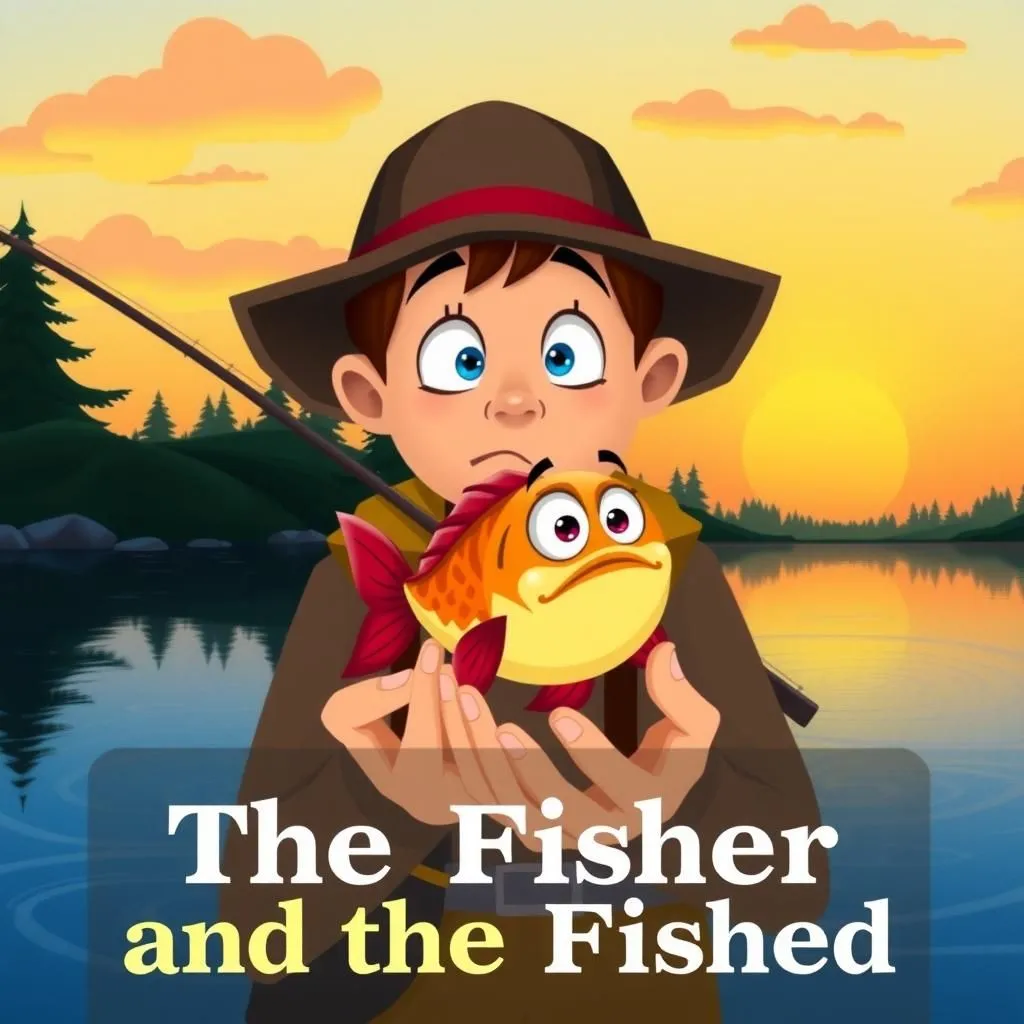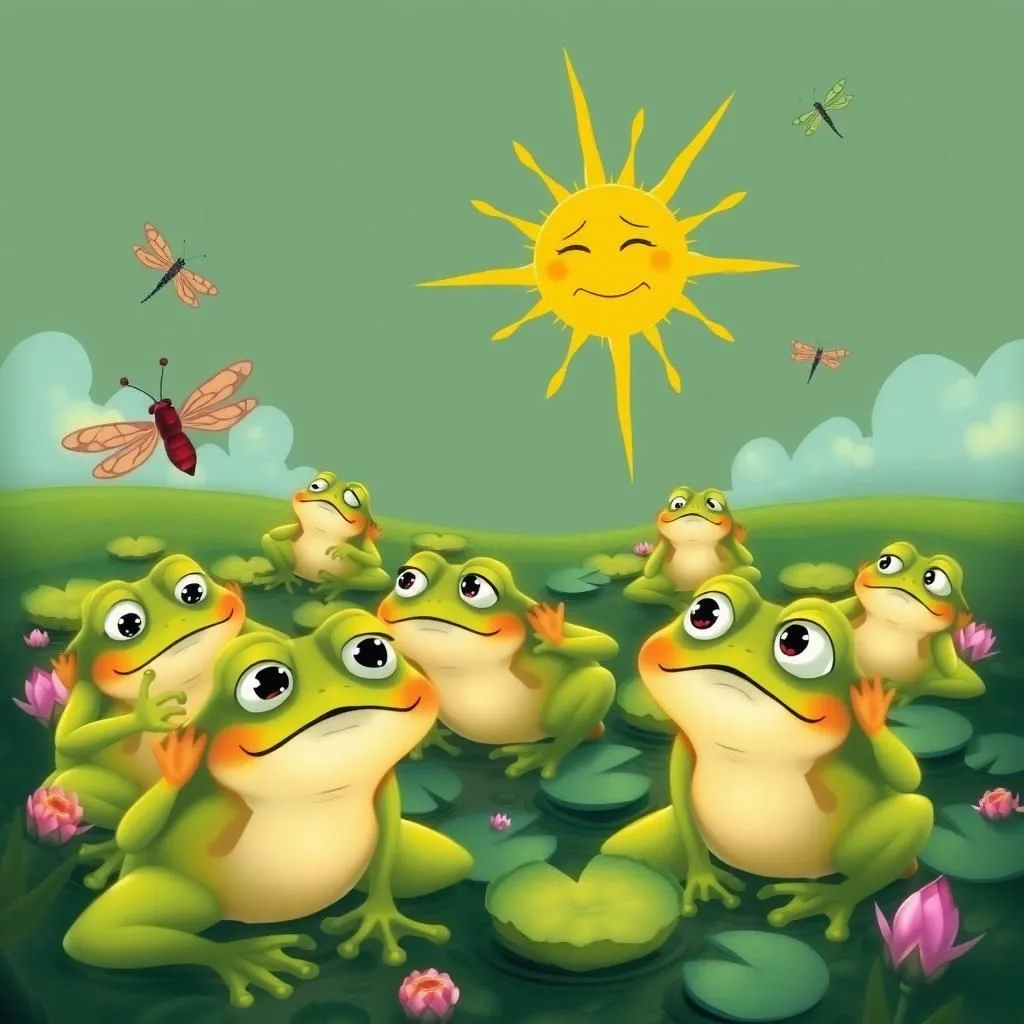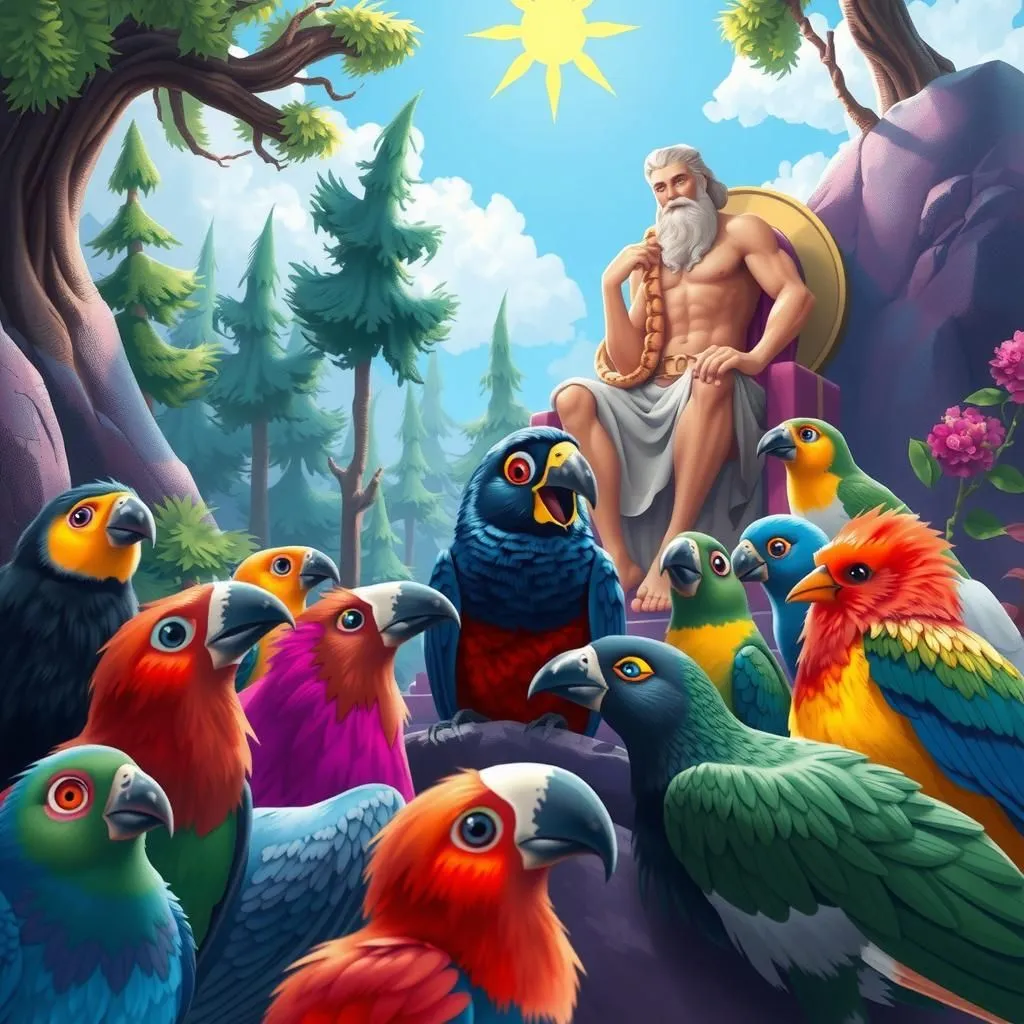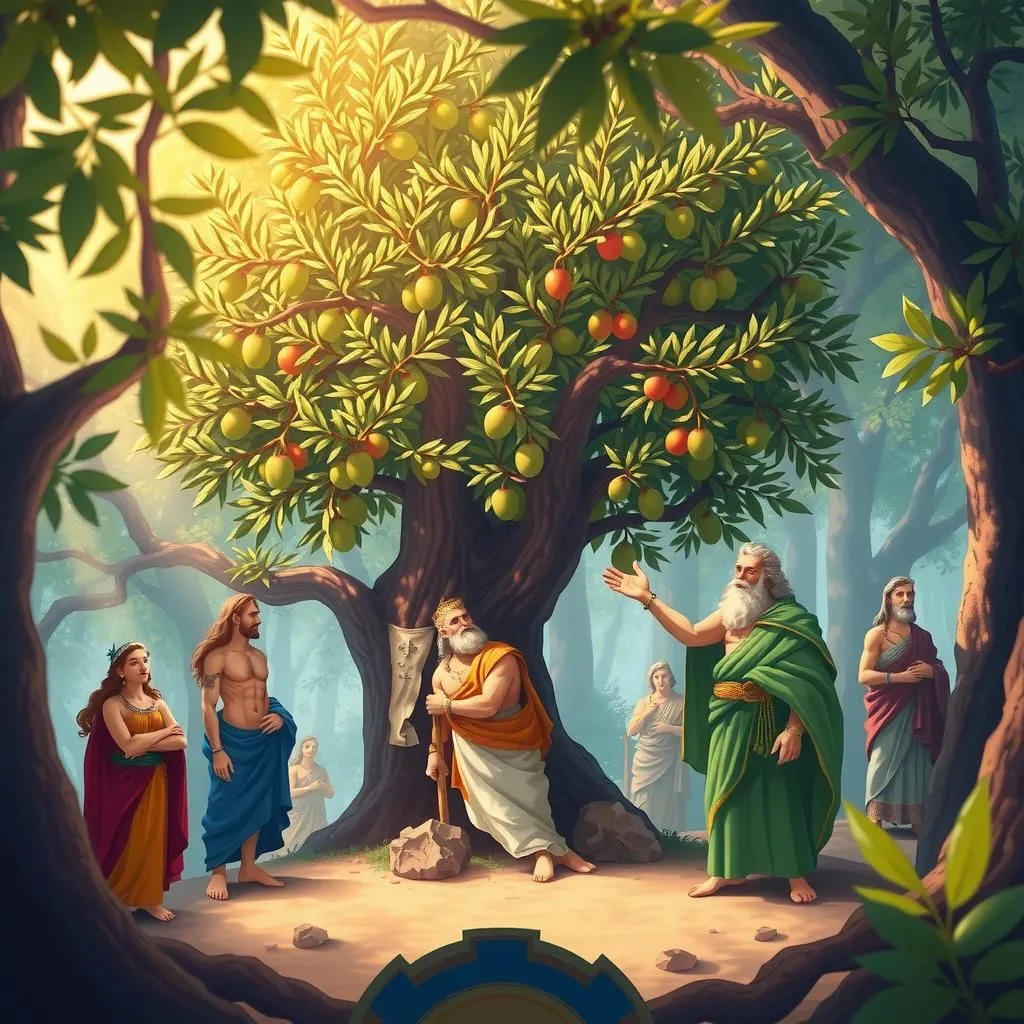
The Fisher and the Fished
In "The Fisher and the Fished," a fisherman catches a small fish that humorously pleads for release, arguing it cannot benefit him since the gods do not eat fish. The fish suggests that the fisherman could attain divine status for his unique catch, prompting a reflection on worth and recognition. This short bedtime story offers inspirational lessons about humility and the value of all beings in a humorous way.


